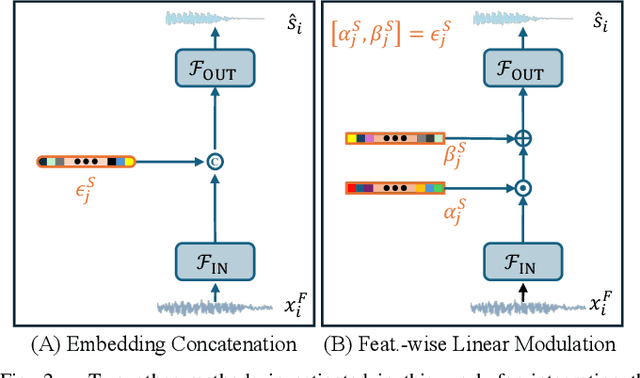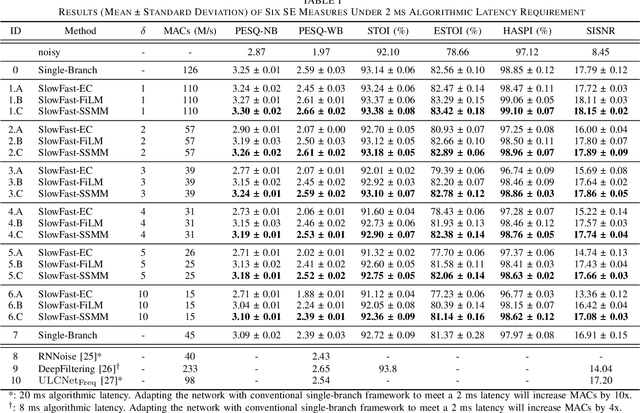Modulating State Space Model with SlowFast Framework for Compute-Efficient Ultra Low-Latency Speech Enhancement
Paper and Code
Nov 04, 2024



Deep learning-based speech enhancement (SE) methods often face significant computational challenges when needing to meet low-latency requirements because of the increased number of frames to be processed. This paper introduces the SlowFast framework which aims to reduce computation costs specifically when low-latency enhancement is needed. The framework consists of a slow branch that analyzes the acoustic environment at a low frame rate, and a fast branch that performs SE in the time domain at the needed higher frame rate to match the required latency. Specifically, the fast branch employs a state space model where its state transition process is dynamically modulated by the slow branch. Experiments on a SE task with a 2 ms algorithmic latency requirement using the Voice Bank + Demand dataset show that our approach reduces computation cost by 70% compared to a baseline single-branch network with equivalent parameters, without compromising enhancement performance. Furthermore, by leveraging the SlowFast framework, we implemented a network that achieves an algorithmic latency of just 60 {\mu}s (one sample point at 16 kHz sample rate) with a computation cost of 100 M MACs/s, while scoring a PESQ-NB of 3.12 and SISNR of 16.62.
 Add to Chrome
Add to Chrome Add to Firefox
Add to Firefox Add to Edge
Add to Edge